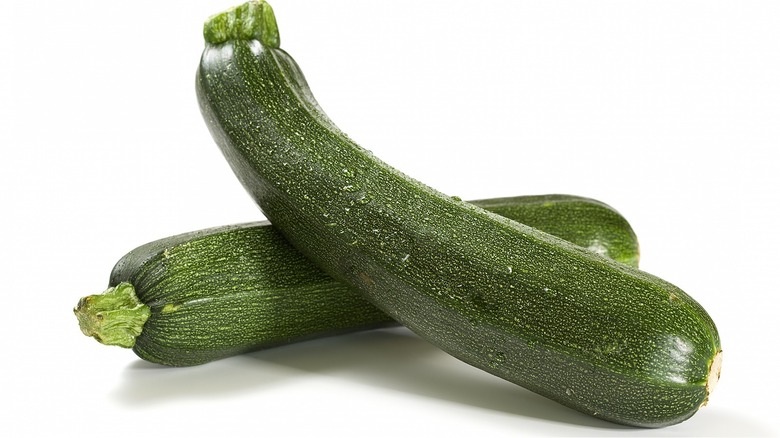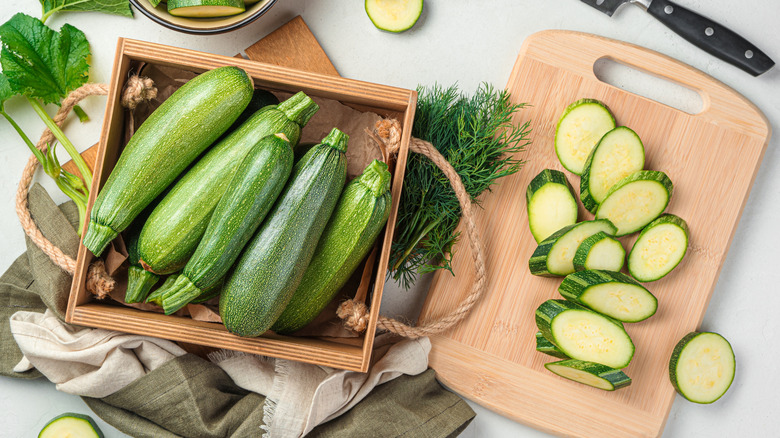Think Twice Before You Peel Zucchini Or You Might Miss Vital Nutrients
Peeling fruits and veggies seems like a no-brainer — but is it, really? While some obvious suspects, like onions, avocados, pineapples, and oranges, are typically eaten with their skins off, things get a bit murky when it comes to getting rid of the outer layers of squashes and root vegetables.
Some fruit and vegetable skins are too tough to eat, harder to digest, or simply happen to be inedible, which makes peeling them a necessary step according to Healthline. In other cases, some cooks may be prompted to peel fruits and vegetables for fear of pesticide-ridden skins. But it turns out not all veggies need to be peeled first. In fact, you are missing out on tons of nutrients by throwing away the skins. Take apples, for example: the U.S. Department of Agriculture finds that a medium-sized apple with its skin intact contains double the fiber, more energy, more vitamin C, vitamin K, and vitamin A than peeled apples.
Besides, it's not just apples that are more nutrient-rich when eaten unpeeled. Healthline finds that most unpeeled fruits and vegetables generally tend to have more nutrients than their peeled counterparts. As long as a vegetable skin is edible, it might be worth thinking twice before peeling it, and luckily, zucchini skins are also on the list of vegetable peels that are perfectly safe to eat.
Unpeeled zucchini may be even more nutritious
Zucchinis have a high amount of antioxidants, especially certain carotenoids that can be beneficial for heart, eye, and skin health, per Healthline). But the majority of said antioxidants don't lie in the zucchini's flesh: it's the skin of the vegetable where the antioxidants are most concentrated.
Although more research is needed, studies on animals indicate that the high levels of antioxidants in zucchini skins may mean the skin's extract can also help to bring blood sugar levels down. While some types of zucchini have a lower amount of antioxidants compared to others, peeling any zucchini will mean that you are stripping most of the zucchini's beneficial antioxidants away. AllRecipes also notes that it's in the skin of the squash where zucchini's fiber — both soluble and insoluble — is primarily present.
If you'd like to make the most of its nutrients, it might be best not to peel zucchinis at all. In fact, BBC even states that they can be eaten raw. As long as you pick zucchinis that aren't mushy and hold their shape, and look for squashes that don't have many blemishes on the skin, you can simply wash the zucchini and add it to your recipe. If pesticides are the only issue preventing you from eating zucchini skins, Healthline finds that it might not even be a significant matter of concern — the nutrients present in vegetable skins could be more beneficial than any harm consuming the pesticides might cause.

